What are Private Label Products? A Beginners Private Label Guide
- Dec-03-2020
- Bilal Uddin
- 2 comments
Private label products have become an ideal, profitable, and one of the most sought after category for ecommerce entrepreneur.
It took me by surprise when I came across the news that Kirkland Signature (a private label brand of Costco) was valued at $75 billion.
This spark the curiosity in me to dig more about private label products and here are some interesting facts I found about it,
- Private Label products earned a total of $138 billion from US grocery alone, (Source: Food and Marketing Institute)
- The Private Brand Intelligence Report said that 81% of shoppers buy private label products every time they shop, and 85% trust private label products than other brands.
After reading and digging into the private label stats, I realized its significance. However, I do believe people are having difficulties in understanding the concept of private label.



So, I decided why not answer all the queries related to private label model.
Here is what you are going to learn in the next 15 minutes about private label products.
2- What is Private Label Dropshipping?
3- How to Find Private Label Manufacturers/Suppliers?
4- How to Sell Private Label Products on Amazon?
5- How to Sell Private Label Product on Shopify?
6- Private Label vs White Label
So, let’s start it from basic.
What is Private Label?
A Private Label Product selling is selling third party manufacturer product under your brand name. In this model, you contact the manufacturer and explain the details of the product that you want to sell. Then the manufacturer creates the product, pack it as per your preference and deliver it to your store so you can retail it as your product.
Example:
Amazon sells multiple third party clothing brand on its platform. However, it also sells its clothing brand – Amazon Essentials – which is a Private Label Product.
How Is Private Label different from wholesaling and reselling?
In wholesaling or reselling, you get the product in bulk quantity and then sell it at retail prices without naming it as you own brand and in your packaging.
What is Private Label Dropshipping?
Private Label dropshipping is not exactly dropshipping.
In dropshipping, the seller does not need to keep, stock, pack, and ship the inventory. The dropshipper directs the order to its suppliers to ship the product to the customer.
In Private Label Dropshipping, the seller receives the order from the manufacturer, keep the inventory, do the branding, and then send it to the fulfillment services to deliver the product to end-consumer.
So, this type of dropshipping is pretty different from the traditional style of dropshipping. However, it depends on the suppliers if the private label on your behalf and sends it to the individual seller. That is totally up to the dealing between you and the supplier/manufacturer.
How to Find Private Label Manufacturers/Suppliers
Private label manufacturers are usually the ones who supply the product in wholesale and for dropshipping. The platforms are same; you have to contact the manufacturer on these platforms and tell them your concern.
The manufacturers are very cool to supply the product for private label. You can even send the manufacturer the design of your tags and packaging so that you receive the product in your branding.
I recommend to let the manufacturer do the branding of your product. It would cost much cheaper then receive the product and do branding yourself. Well, it is your call!
Now coming to the burning question
How to Evaluate Private Label Manufacturer
Finding a trustworthy manufacturer for your product is an essential part of the private label business.
To assuage the trouble of finding a private label manufacturer, I have listed down some points that you should use as a guide to evaluating the manufacturer.
- Manufacturer should be your product expert. Always look out for the manufacturer who is a specialist in making a particular kind of product that you are seeking. You do not need to stick with one manufacturer if you are going for some different product.
- Search to find the best price. Do not just stick with one platform, search until you find the best price for the product. The manufacturing will highly affect your profit margins. Make sure to ask about bulk buying, discounts, sample products, and shipping charges.
- Ask for sample & check product quality. When it is the matter of making a brand, then you cannot compromise on the quality of the product. Keep searching for the manufacturer on different platforms, read manufacturer reviews, and when you find a genuine manufacturer, ask them for sample product for testing for complete satisfaction.
- Check the delivery time. Before finalizing any manufacturer for your private label business always ask them about the delivery times, so that you can make a better management of your inventory.
- Read reviews and feedback. Many forums and platforms provide the reviews and feedback of manufacturers. So, always read them before making any commitment to the manufacturer.
List of Private Label Manufacturers
There are multiple marketplaces, forums and directories where you can easily find the best private label manufacturers. I mentioning some of the top platforms here,
Alibaba
Alibaba is a global b2b marketplace where big Chinese manufacturer and suppliers offers products to global merchants.
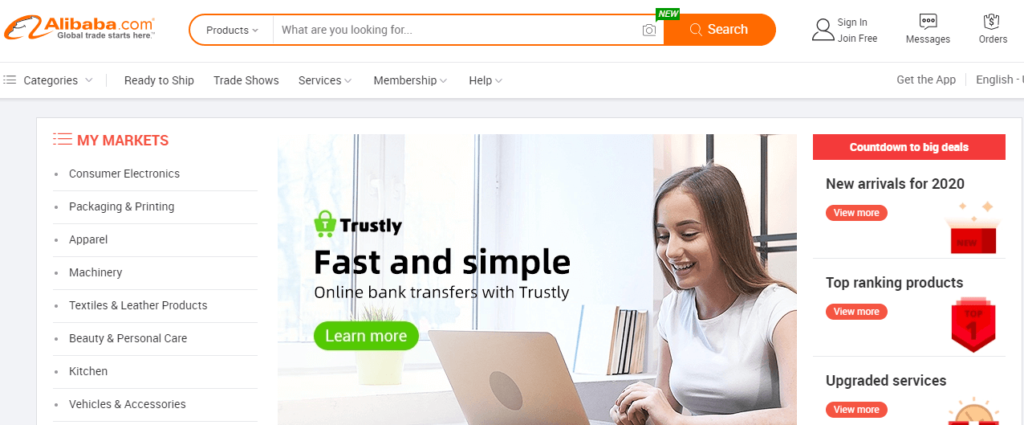
SaleHoo
SaleHoo is primarily a supplier directory for e-business owners where you can find big ecommerce manufacturer and suppliers for your online business.
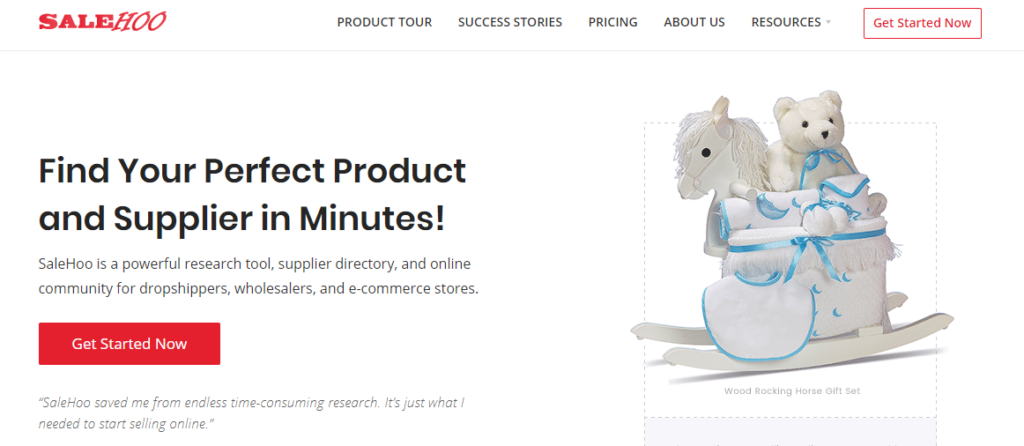
Check out detailed SaleHoo Review 2019.
China Brands
China Brands is another Chinese wholesale b2b platforms, that product manufactured products to medium and small businesses.

Private Label Manufacturers (Niche-Based)
Selling anything is private label can be a profitable as long as you have strong grip in which you are selling. To make you work easier I am listing some of the top private label manufacturer based on their niche.
Private Label Cosmetics Manufacturer
Lady burd
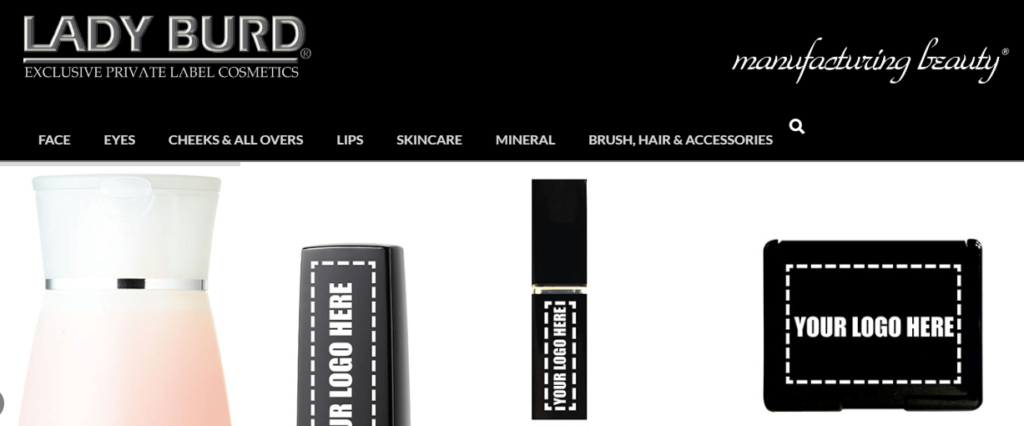
Jordane Cosmetics
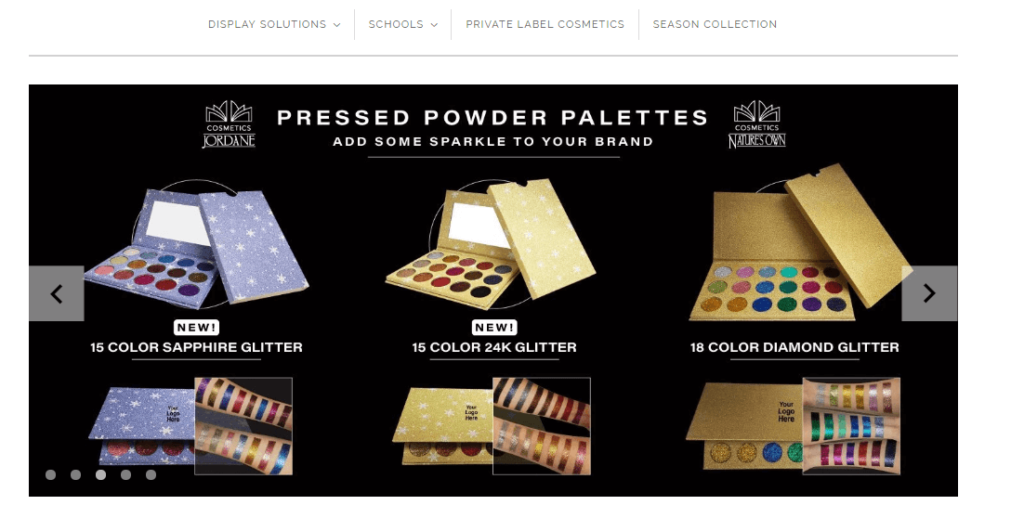
Radical Cosmetics

Frost Cosmetics
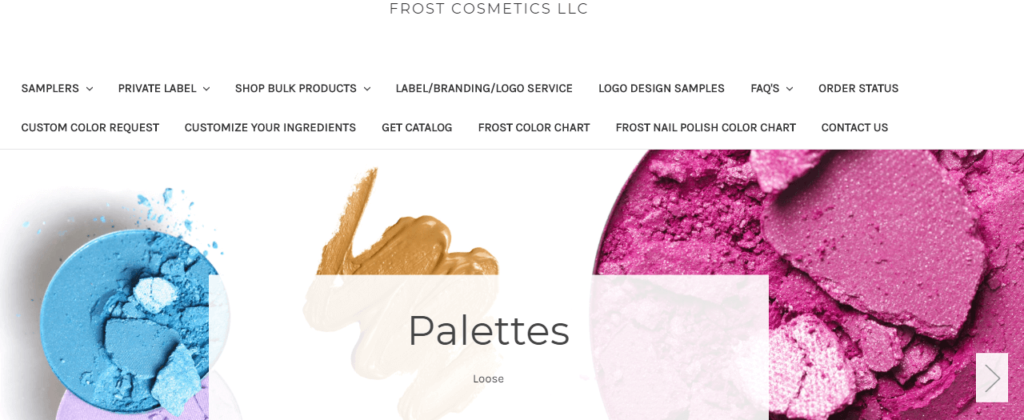
Audrey Morris Cosmetics
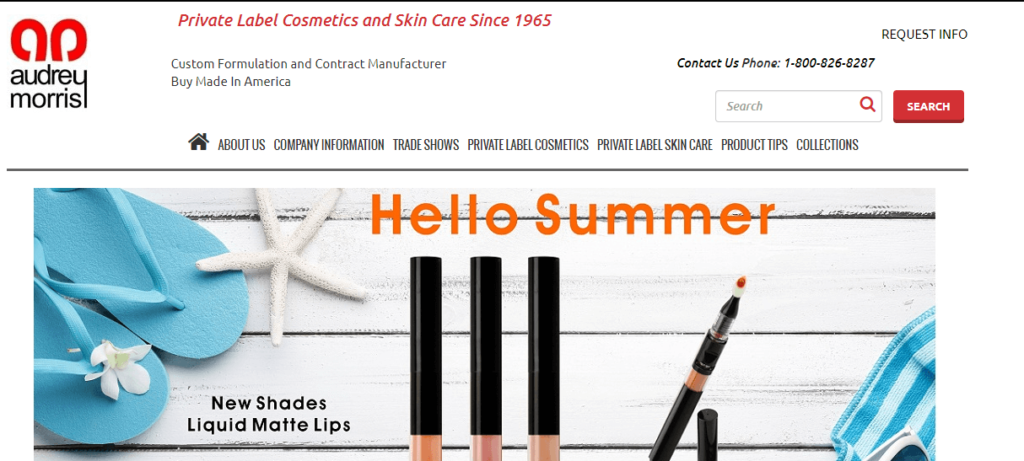
Private Label Clothing Manufacturer
Stylus Apparel
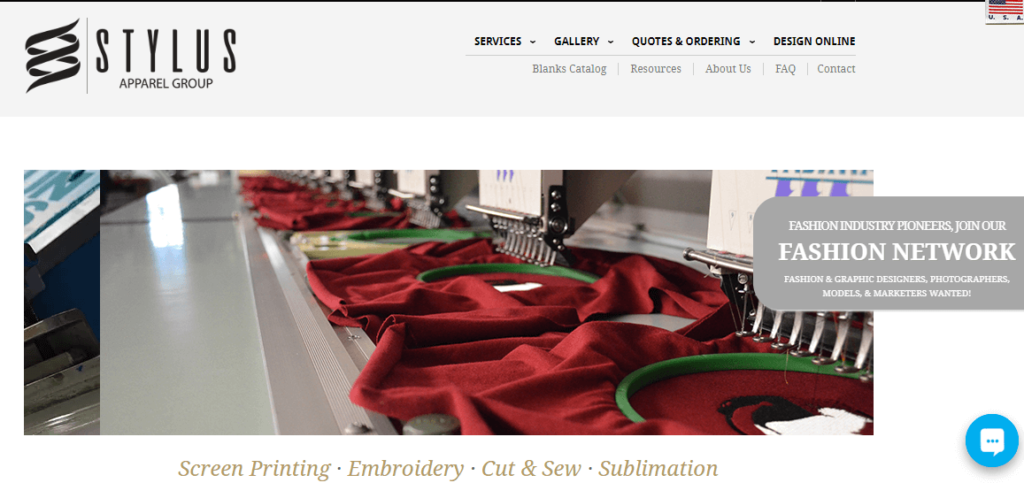
Alanic International
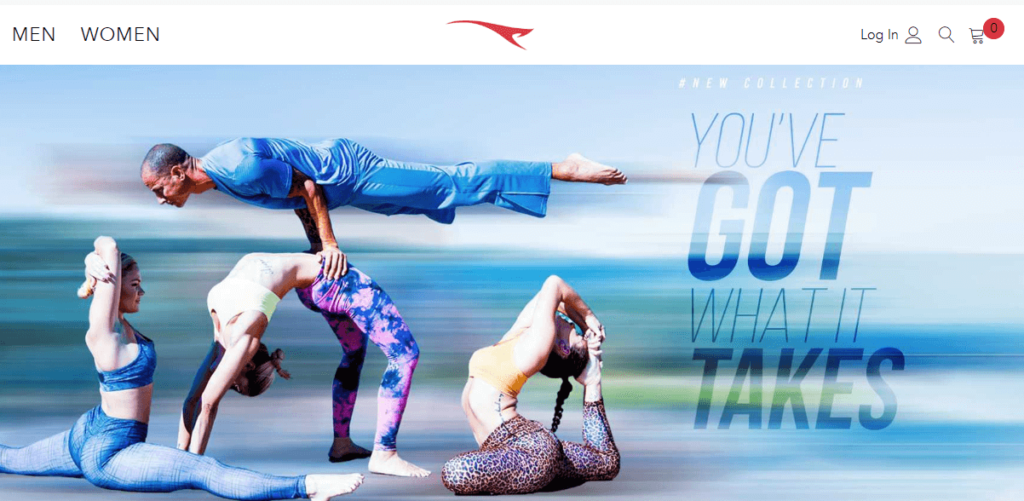
Royal Apparel
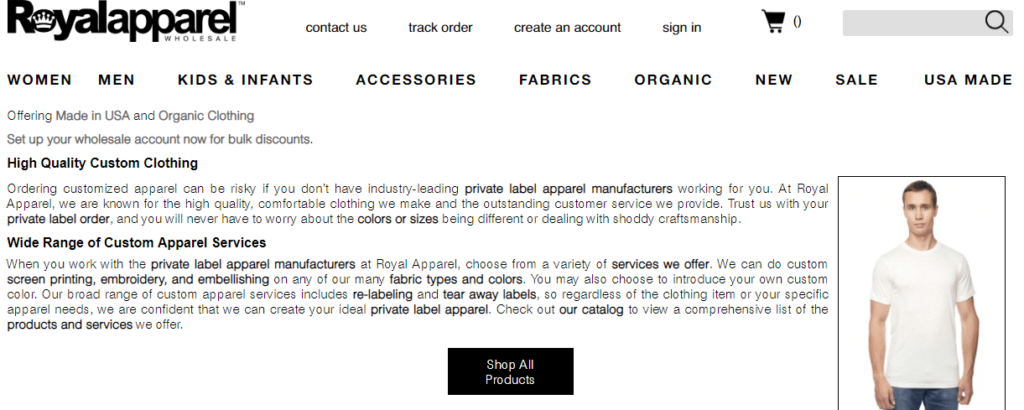
Ink Monstr
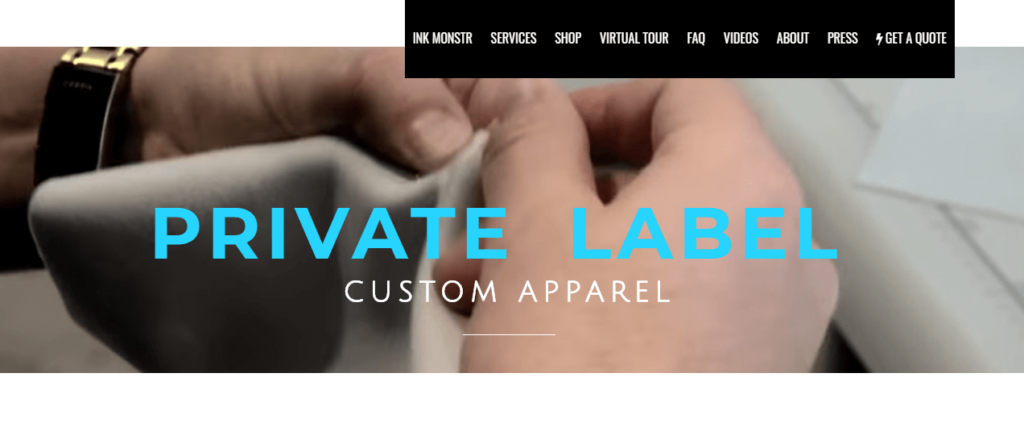
Red Wood Classic
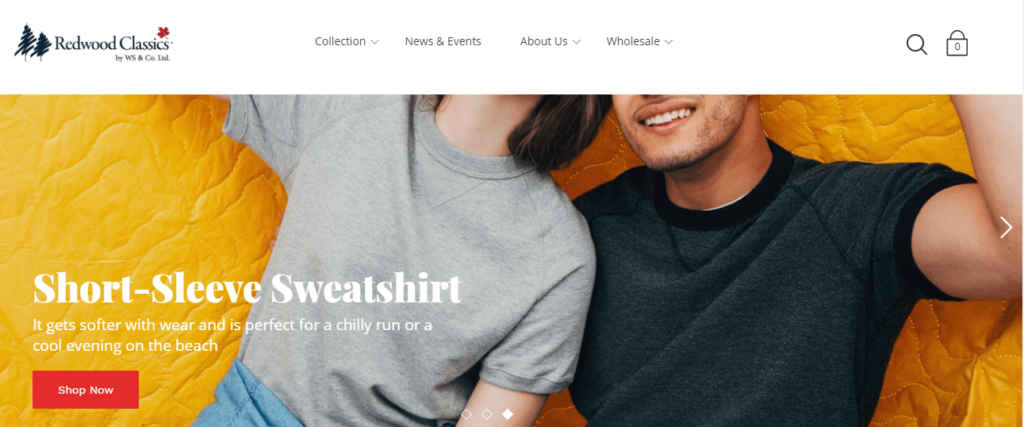
Private Label Supplement Manufacturer
The rising demand of essential oils and vitamins make it a perfect to start your private label supplement brands. Although, there might be some restriction based on the policies of your location.
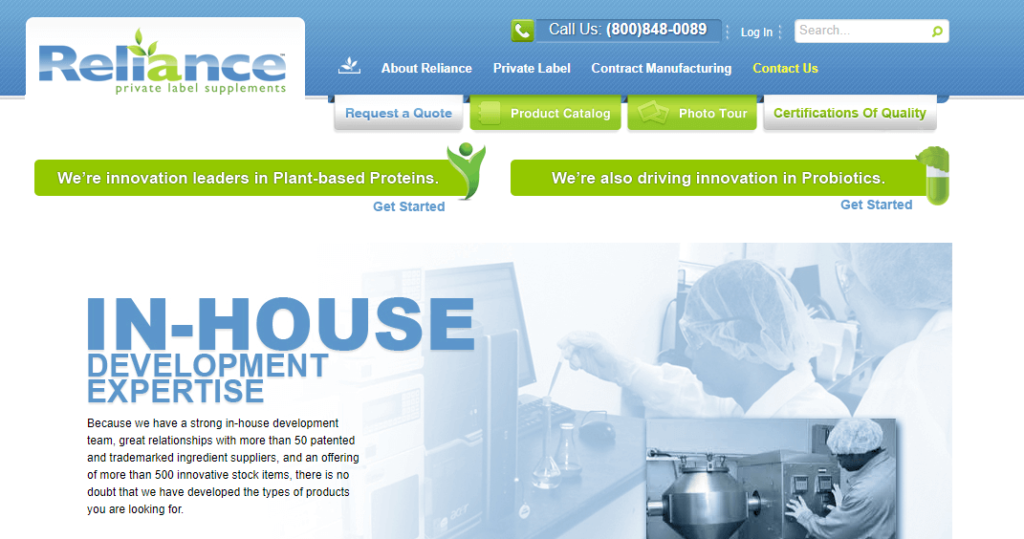
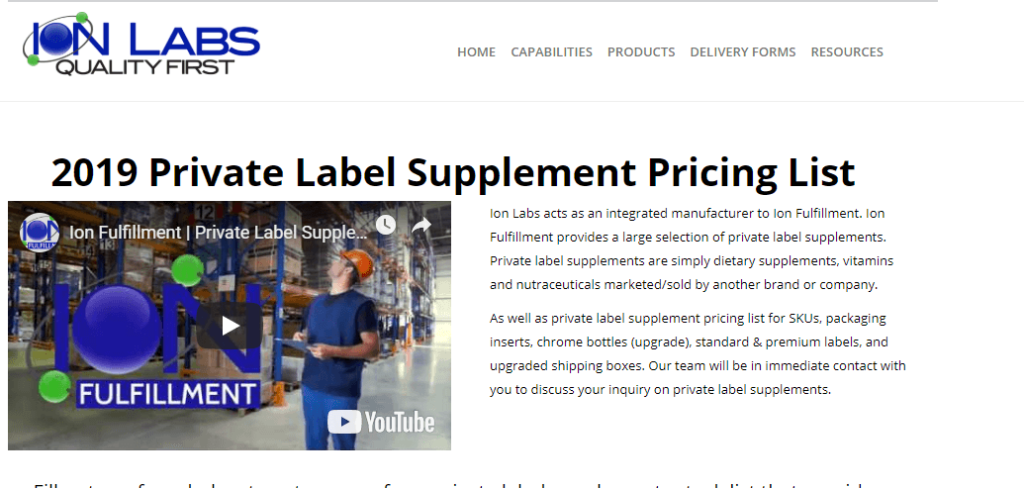
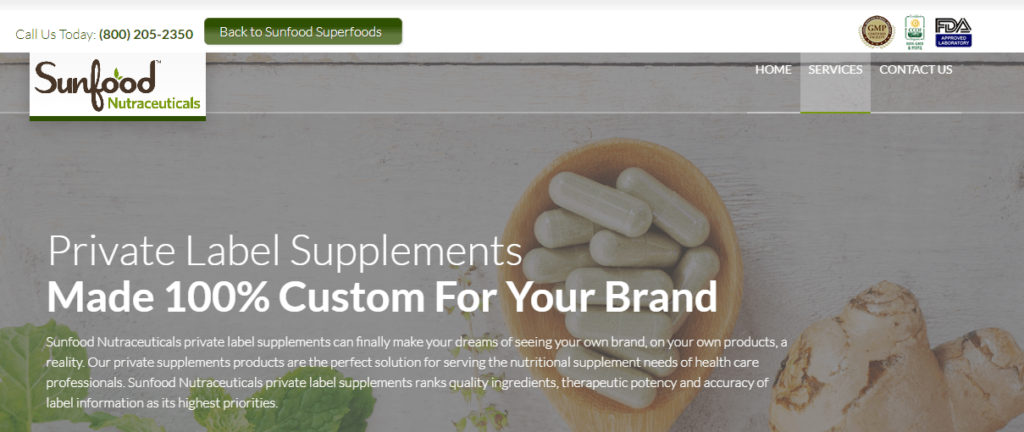
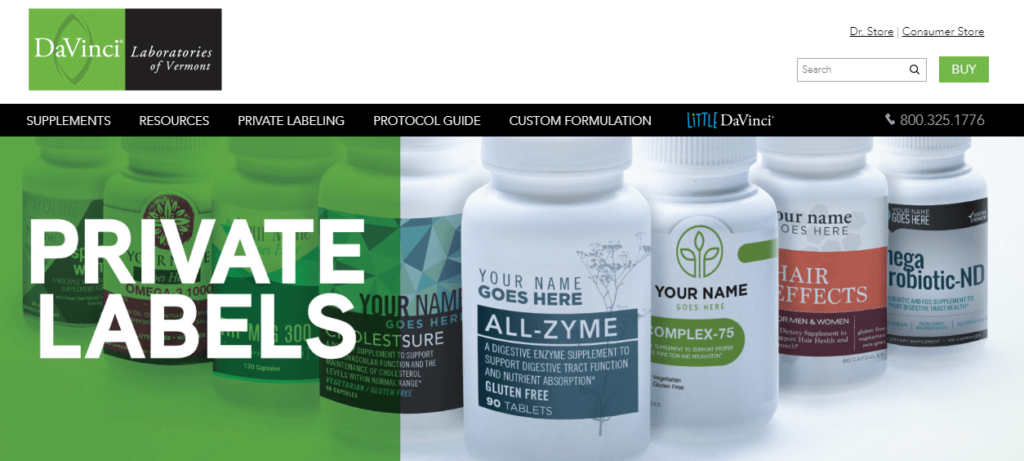
Private Label Food Manufacturer
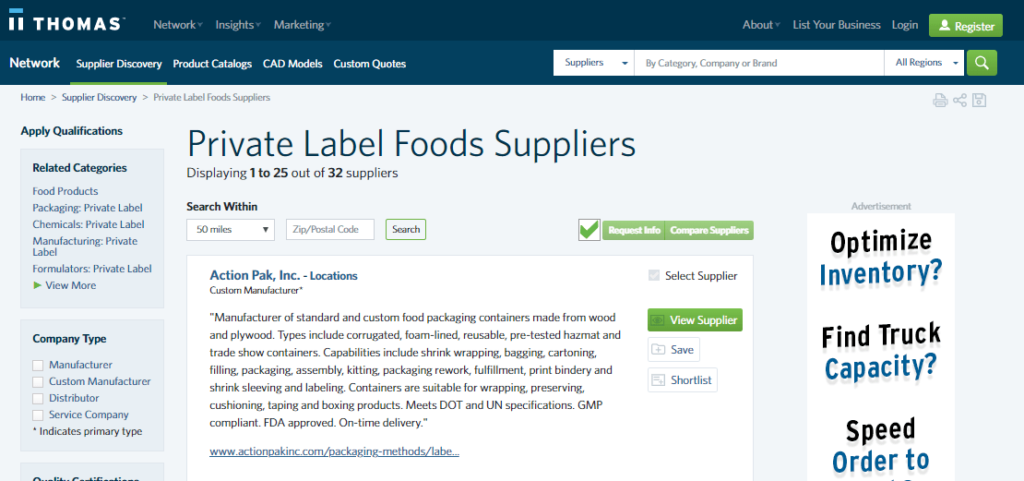
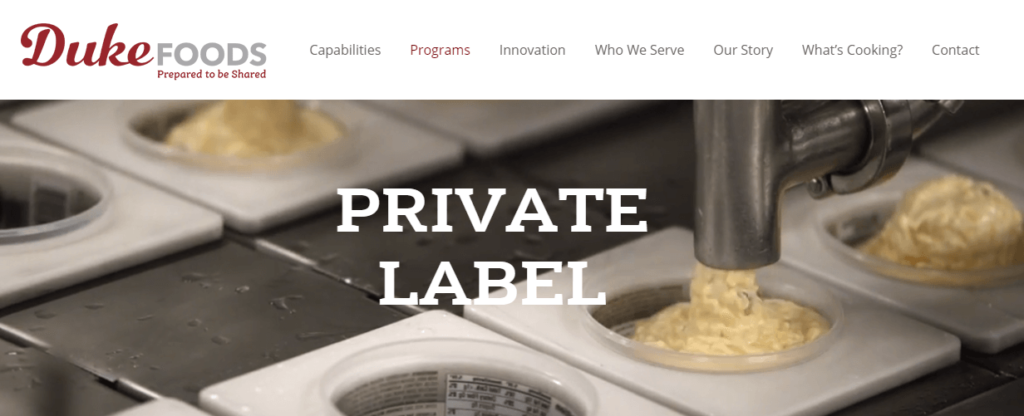
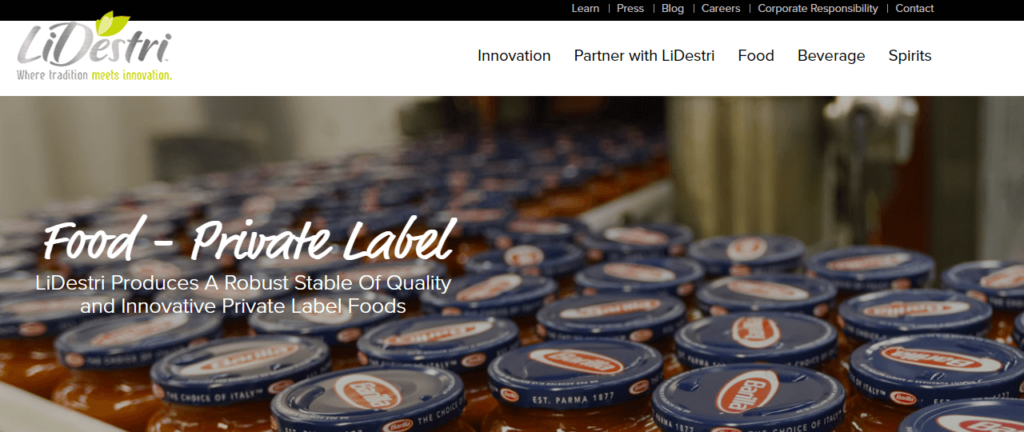
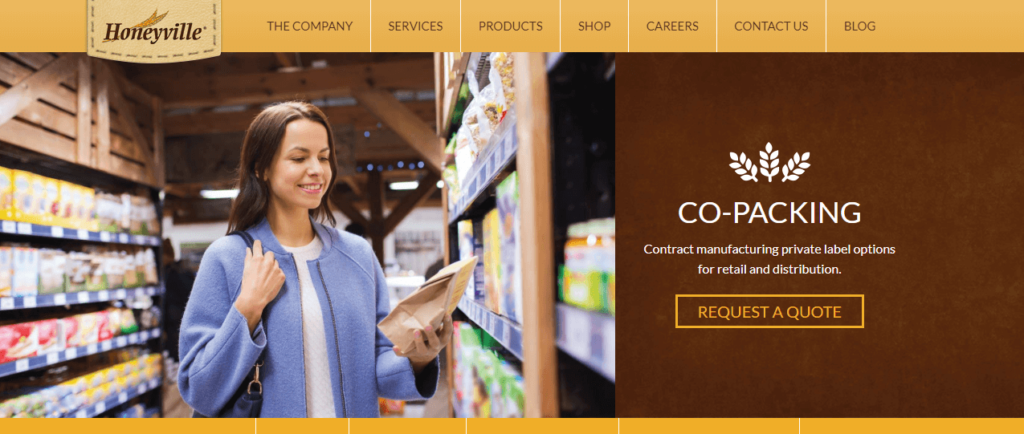
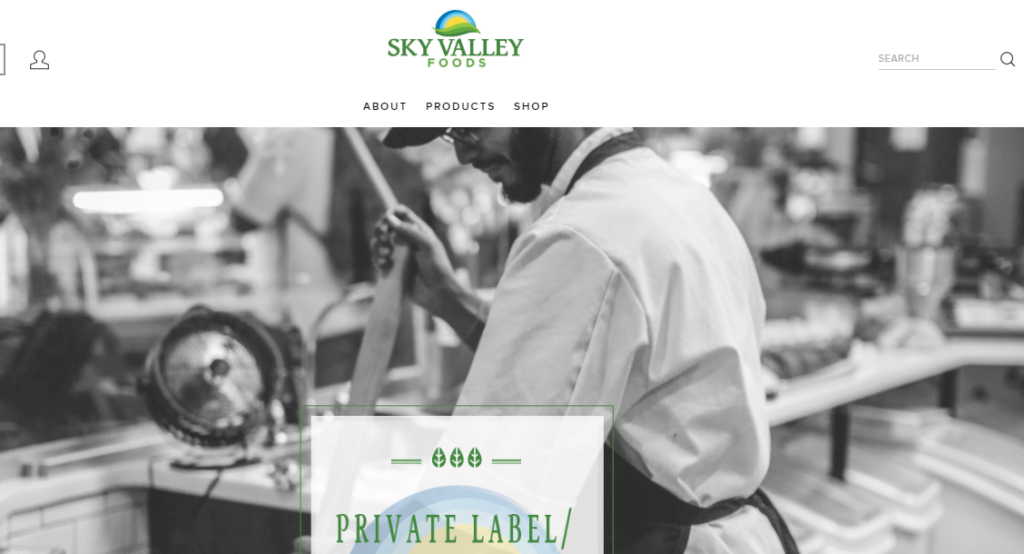
How to Get Private Label Product ideas?
The success in the private label business model is primarily dependent on the products that you are selling.
However, before selecting a product to sell in private label, make sure the product should fulfill the following requirements:
Product Should be Less Complicated: Always go for the product that is easy to built and does not require any complications after you sell it. For Example, Electronic items seem profitable, but after-sales services could become a headache.
Product Should be Easily Deliverable: Choose the product that does not require any regulation and paperwork to deliver. Also, it should fit in the size and weight requirement of delivery services.
Product Should be Flexible to Fit in Trend: Online selling is all about trends. In private label, where you are on the verge to make profits from your brand, it is extremely crucial to sell the trending products. For example, if you are selling T-shirts, then you can quickly sell hoodies in winters.
But, do not confuse the trends with seasonal products; you cannot make a brand by selling seasonal products.
Once, you consider these attributes, then go ahead to find the best product to sell in private label.
Here are some steps that you need to follow to get the product ideas for Private Label,
Step 1 – Amazon Best Seller
Amazon offers a fantastic service – Amazon Best Seller Page – for the sellers to get the insights about what is selling best on this platform.
There is only one prerequisite to get product idea from this platform, and that is to have an understanding of your niche.
You must have a clear idea of the niche you are going to penetrate. If you are having trouble finding a profitable niche, then check out this post “9 ways to find a profitable niche“.
You need to go to the Amazon bestseller page and click the category/niche on the left side to see the list of best-selling item in that niche.
For example
Here, I selected the pet supplies niche. After clicking it, I get the list of best-selling product in this niche as well as many sub-niches ideas.
I found this ‘puppy pad’ a potential product to sell as a private label (as it completes all the necessary product attribute mentioned earlier).
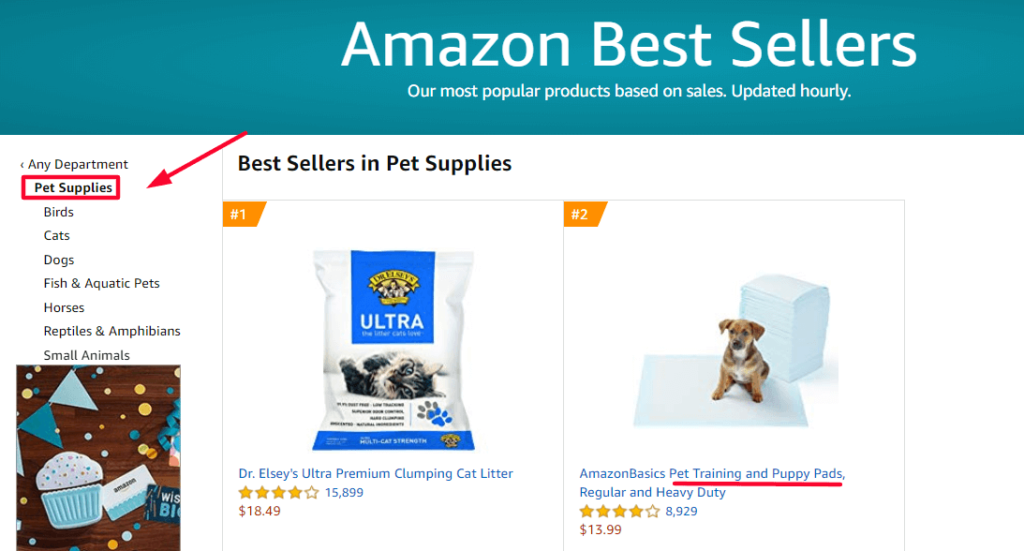
However, the job is not done yet!
Step 2 – Check the ‘Product’s trend
Now, I have found a best-selling product in my niche, but now I have to find that is it a stable product in my niche or it is just a fad.
For that, I went to Google Trends to see the worldwide demand of ”puppy pad”.
The trend of this product is quite stable throughout the last five years. It is consistently above 50, which shows that this product is in-demand the whole year.
Everything looks great here, but still, I need to find out how eagerly people are looking for this product on Amazon.
Step 3 – Look Product Demand Jungle Scout (paid)
Jungle Scout is an amazing Amazon research tool that gives complete information about the products, niche, and suppliers of Amazon.
To learn more, check out this comprehensive Jungle Scout Review.
Jungle Scout is a paid service, and if you are planning to sell on Amazon, then it is highly recommended.
So, to make my product idea research impeccable, I went on to Jungle Scout to find out how much people are looking for this product on Amazon.
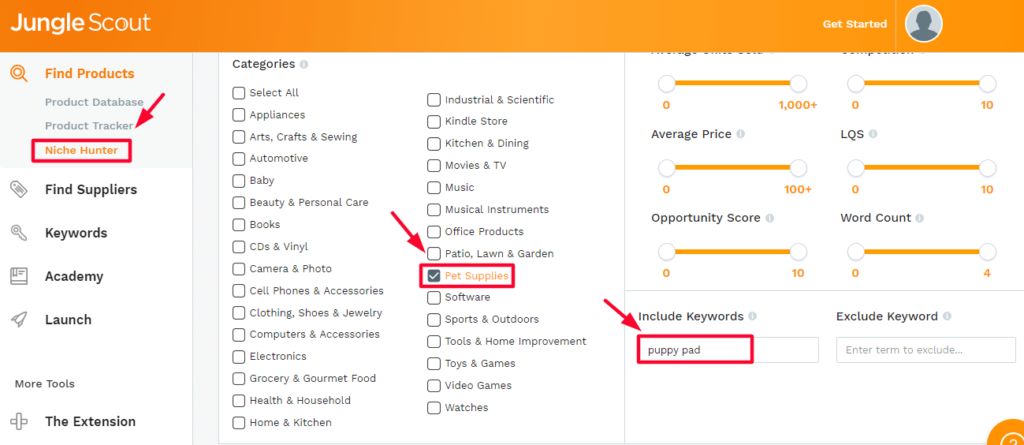
If a product is sold at an average of 250+ item per month, then it a good to go product.

Now, I can say that this product is a sure shot hit in my niche.
But still, I would recommend performing one more step to find out how much profits you can earn from this product.
Step 4 – Check the Product’s Manufacturer
I have made up my mind to sell this product, but I want to know on what rate can I get this product from the manufacturer.
For that, I went to Alibaba and searched for this product.

Finally, I found a manufacturer, to get this a whole carton of puppy in just $12.80 (On Amazon it is listed for $13.99 for a single piece).
Now I can customize this product as per the demand and sell it as my brand.
By following this comprehensive method, I found the product idea for my private label business in a matter of minutes. Now it is your turn!
How to Sell Private Label Products on Amazon?
Amazon is the largest ecommerce marketplace that makes an ideal place to sell your product and leverage from market ecommerce giant.
By using Amazon FBA program, it becomes much easier to sell by using many helping tools of this program. To use FBA program, you have to become an Amazon seller by setting up an Amazon seller account.

In private label, you are bound to give attention 24/7 to your products. In the FBA program, all you need is to deliver the product to the Amazon fulfilment center. From there, Amazon will take complete responsibility to keep, pack, and ship as well as provide customer services.
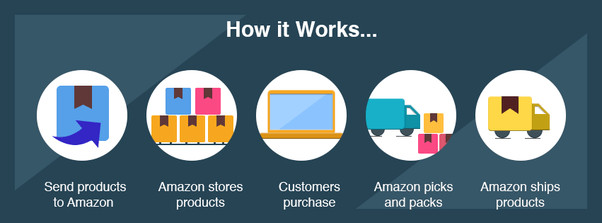
So here is how it works,
You contact the manufacturer and order him to create the product.
The manufacturer will deliver the product to the nearest Amazon fulfillment center with your branding.
In that time, you need to create product listing on your Amazon account
When a customer purchases a product, Amazon will pick it up from the fulfillment center and deliver it your customer
For its fulfillment program, Amazon charges some fees. You can see the fees and rate structure here.
How to Sell Private Label Product on Shopify
Selling private label products is similar to selling to wholesale and dropshipping products.
You need to sign up to Shopify and buy one of its plan to live your store.

Then add your products to Shopify and customize the images, title, and product description as per your preference.
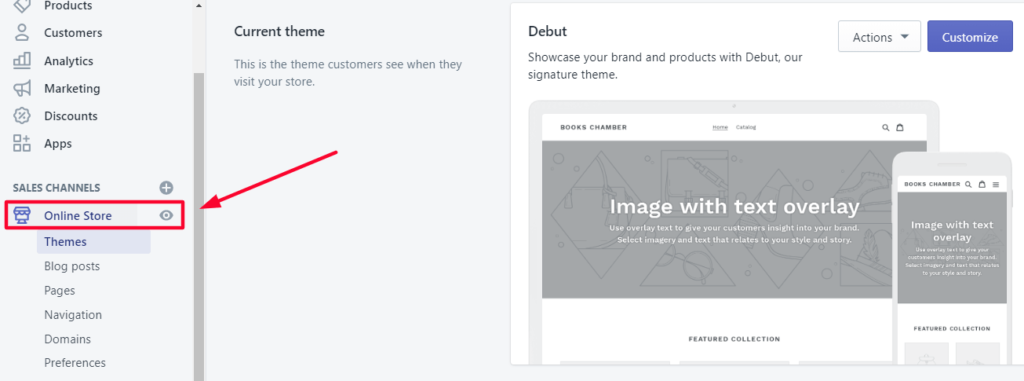
To learn about how set up a Shopify store, click here.
Shopify or Amazon FBA – Where to Sell Private Label Products
Both platforms have their own perks that provide benefits to the sellers. I am highlighting some points on which you can decide the best option for you
Easement – Amazon FBA
Amazon provides a lot of easiness as it takes care of everything from keeping the inventory and delivery to customer services.
On Shopify, these all responsibility comes on the shoulder of the seller that requires a lot of effort.
Branding – Shopify
If your priority is to make your private label a ‘brand,’ then Shopify is your best option. You will be the jack of all trade; you will decide how to market your product on social platforms and hire an influencer to sell your products.
If you are struggling in selecting a name for your brand you can use free brand name generator.
On Amazon, you will be under Amazon boundary, and there are higher chances that your competitors would be fighting over the same product and keywords. However, you can use Amazon PPC for a particular keyword to be on top of search bar of Amazon when your product is searched.
Marketing & Exposure – Amazon FBA
Amazon is an ecommerce giant having over 206 million visitors every month if only 0.5% of visitors coming for your niche, that means you have over 1 million customers to serve each month. And the best part is that Amazon gives more exposure to its FBA program seller than its regular seller.
By using the right keywords and marketing strategies, there are higher chances for your products to get potential customer quickly.
On Shopify, you will have to go for paid marketing, and you also will need some expertise in social media marketing to reach out to potential customers for your product.
Profits – Shopify
In the long run, Shopify is a much cheaper option than Amazon FBA.
Amazon charges fees for its FBA service such as keeping the inventory fees, delivery charges, and per unit item selling fees as well as sellers account fees. These charges will surely affect the end profits.
As I said, both platforms are good for you as long as you have your priority and preference clear.
I personally recommend using both platforms. Amazon can integrate with Shopify, so you have an excellent opportunity to leverage from both platforms.
Private Label vs White Label
Many beginners think white label and private label as the same thing, and to some extent, it is the same thing but not identical.
But before that first understand White Label
What is White Label?
A manufacturer produces the product in bulk white label products to distribute to retailers, and then it is rebranded as retailer’s product, this process is called white label.
The major difference between white label and private label
White label products are made on purpose to distribute it to many retailers so that they can sell it as their product.
Private label products are specially made for a specific retailer; the retailer can customize as per their preference. That’s why the product entirely becomes the possession of the retailer.
Wrapping up
I hope that the concept and queries related to private label products must have been clear. You must have realized that by selling private label product you can easily make your brand.
So, if you are willing to make a brand of your own without getting into the hassle of manufacturing, then private label is a perfect business model for you.
If you that I have missed something to mention in this post, then feel free to tell in the comments. You can join our community and discuss it with 4000+ other aspiring ecommerce entrepreneurs.

this the best informative blog world wide, this awsome. you are realy impacting knowledge, thanks. please whats the minimum quantity that a manufacturere can private label in your name. thanks Henry Nigeria
Thanks for the appreciation!
Henry, the minimum order quantity varies from suppliers to suppliers. It totally depends on your communication with the manufacturers. Once you pick a manufacturer for your POD products, you can have this conversation about how much do you want in a single order. It is not fixed!